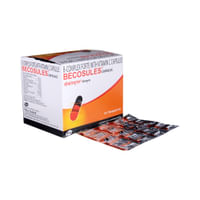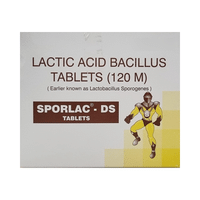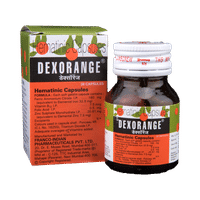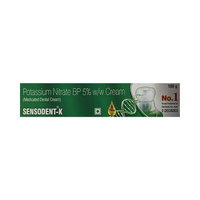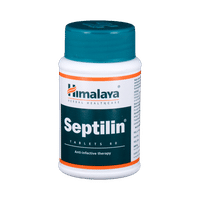B-Fax Ophthalmic Solution
Rs.34.20for 1 bottle(s) (5 ml Ophthalmic Solution each)
food interaction for B-Fax
alcohol interaction for B-Fax
pregnancy interaction for B-Fax
lactation interaction for B-Fax
food
alcohol
pregnancy
lactation
No interaction found/established
No interaction found/established
Information regarding the use of B-Fax Ophthalmic Solution during pregnancy is not available. Please consult your doctor.
CONSULT YOUR DOCTOR
Information regarding the use of B-Fax Ophthalmic Solution during breastfeeding is not available. Please consult your doctor.
CONSULT YOUR DOCTOR
SALT INFORMATION FOR B-Fax
Betamethasone(0.1% w/v)
Uses
Betamethasone is used in the treatment of allergic conditions.
How it works
Betamethasone is a steroid which works by blocking the production of certain chemical messengers in the body that cause inflammation (redness and swelling) and allergies.
Common side effects
Weight gain, Mood changes, Behavioral changes, Skin infection, Hair follicle inflammation, Itching, Burning sensation, Cataract, Increased glucose level in blood, Bruising, Headache, Dizziness, Weakness, Fatigue, Visual disturbance, Nausea, Altered menstrual cycle, Impaired wound healing, Dryness, Stretch marks, Hypertrichosis (excessive hair growth), Skin atrophy, Miliaria (sweat rash), Perioral dermatitis, Allergic contact dermatitis, Hypopigmentation, Local site pain, Angioedema (swelling of deeper layers of skin), Decreased potassium level in blood, Hypersensitivity, Blindness, Pulmonary edema, Rebound effect, Cushing syndrome, Glycosuria, Glaucoma, Slow heart rate, Cardiac arrest, Arrhythmia (irregular heartbeats), Cushingoid syndrome, Perforated peptic ulcer, Pathologic fracture of long bones, Hypothalamic-pituitary-adrenal axis suppression, Charcot-like arthropathy, Steroid myopathy
Ofloxacin(0.3% w/v)
Uses
Ofloxacin is used in the treatment of bacterial infections. It is also used in infections of urinary tract, gastrointestinal tract, female genital organ, skin & soft tissues and lungs (pneumonia).
How it works
Ofloxacin is an antibiotic. It works by stopping the action of a bacterial enzyme called DNA-gyrase. This prevents the bacterial cells from dividing and repairing, thereby killing them.
Common side effects
Nausea, Headache, Dizziness, Abdominal pain, Itching, Fungal infection, Agitation, Sleep disorder, Insomnia (difficulty in sleeping), Vertigo, Cough, Rash, Anaphylactic reaction, Anxiety, Confusion, Nightmares, Sleepiness, Paresthesia (tingling or pricking sensation), Breathlessness, Bronchospasm, Increased liver enzymes, Genital itching, Vaginal inflammation, Phlebitis, Injection site reactions (pain, swelling, redness), Indigestion, Cognitive impairment, Depression, Abnormal dreams, Eye irritation, Joint pain, Muscle pain, Ringing in ear, Photophobia, Fast heart rate, Hypotension (low blood pressure), Increased creatinine level in blood, Photosensitivity, Inflammation of tendons, Tendon rupture, Psychotic disorder, Liver dysfunction, Pseudomembranous colitis
SUBSTITUTES FOR B-Fax
No substitutes foundExpert advice FOR B-Fax
- Betamethasone can be taken with or without food, but try to have it at same time every day.
- Do not use it more often or for longer than advised by your doctor.
- Betamethasone can make it harder for you to fight off infections. Notify your doctor if you have any signs of infection such as a fever or sore throat.
- Side effects such as mood changes or stomach problems can happen when you start taking Betamethasone. Inform your doctor if this bothers you.
- Do not stop taking Betamethasone suddenly without talking to your doctor first as it may worsen your symptoms.
Frequently asked questions FOR B-Fax
Betamethasone
Q. How does Betamethasone work?
Betamethasone works by decreasing the inflammation caused by allergies. It reduces inflammation by blocking the release of certain natural substances that cause allergic symptoms such as swelling, redness, and pain.
Q. Is Betamethasone safe to use?
Betamethasone is safe to use when used in the dose and duration advised by your doctor. You should not take this medicine if you are allergic to Betamethasone or any of the other ingredients of this medicine. Furthermore, you should not take Betamethasone if you have an infection and have not yet started medicine (e.g., antibiotics) to treat it.
Q. Does Betamethasone cause hair loss?
No, Betamethasone is not known to cause hair loss. In fact, it may cause an increase in body hair growth (especially in females) on long-term use. Talk to your doctor if you get excessive hair growth on your body while taking Betamethasone.
Ofloxacin
Q. Can the use of Ofloxacin cause diarrhea?
Yes, the use of Ofloxacin can cause diarrhea. It is an antibiotic which kills the harmful bacteria. However, it also affects the helpful bacteria in your stomach or intestine and causes diarrhea. If you are experiencing severe diarrhea, talk to your doctor about it.
Q. Can I stop taking Ofloxacin when I feel better?
No, do not stop taking Ofloxacin and complete the full course of treatment even if you feel better. Your symptoms may improve before the infection is completely cured.
Q. Can the use of Ofloxacin increase the risk of muscle damage?
Yes, use of Ofloxacin is known to increase the risk of muscle damage, commonly in the ankle (achilies tendon). Muscle damage can happen in people of all ages who take Ofloxacin. Inform your doctor if you feel any kind of muscle pain while using this medicine.













